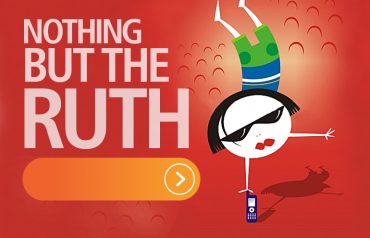A recent accident made me review whether I’ve taken enough precautionary measures in case something like this happens again, but worse.
An unexpected life-altering event can strike any of us at any moment.
No joke. I was in a car accident on my way to the office on April 1 this year.
A Chevy Tahoe turned left in front of my little Toyota Corolla as I was going through an intersection. Its back bumper ripped through my car’s front passenger side. Although I was wearing my seat belt, the impact crashed my head into the roof of my car. While the police officer was writing the report and issuing the other driver a citation, I began to feel the extent of my injuries as the adrenaline wore off.
Later at the hospital, it was confirmed that, along with injuries to my neck and back, I had a concussion.
The only thing you can do for a concussion is to rest your brain, including avoiding thinking and looking at any screens (computer, phone and TV). I couldn’t look at a screen or work for six days. I set an out-of-office auto-reply on my email for anyone seeking to contact me in the interim. (Thank goodness I didn’t have court appearances or deadlines.) Some of the other symptoms that took longer to subside were memory loss, problems concentrating, speech issues, and sensitivity to light and noise.
What If You Become Disabled? Precautionary Measures to Consider
As a lawyer, my brain is my moneymaker. At the very minimum, I need to be able to think and communicate. It is my most important professional asset, and this accident put it at risk. The accident made me mentally review whether I’ve taken enough precautionary measures in case something like this happens again, but worse. If you are a solo or small firm practitioner, you may want to review what protection you have in place for yourself and your family.
Here are a few considerations to get you started.
Disability Insurance
Many lawyers, especially those with children, have life insurance. If you work in a firm with other lawyers, your firm may have a life insurance policy on you as well. But do you have disability insurance?
You are more likely to incur an injury that requires disability insurance than to die, regardless of your age. Additionally, approximately 30% of people between the ages of 35 and 65 will suffer a disability for at least 90 days, and about 1 in 7 can expect to become disabled for five years or more. Looking at the odds, a disability could be more financially devastating than your death.
Buying disability insurance was on my to-do list early on in my career as a solo attorney, but it took a bike accident for me to make it a top priority. (Thankfully, I only sustained scrapes and bruises. But it showed me how fast these things happen.) Every year when I renew my policy, I have the option to submit my tax information so that I can increase my coverage as I make more money. My policy grows with me. I never complain about paying for my disability as a precautionary measure —it’s an investment in my future.
Road ID
Road ID is a well-known product and precautionary measure among certain athletes and outdoor enthusiasts. I wear the product’s bracelet version. The front of the bracelet has my name and the URL for a website. The back has a serial number and a pin number. In the event that I’m rendered unconscious, emergency medical personnel will take my bracelet, go to the website, input my serial and pin numbers, and up will pop my profile that I maintain. It tells them who I am, my medical history, what medications I’m taking and who to contact. It was the same bike accident that inspired me to get a Road ID as well.
Road IDs are marketed to athletes, but it’s something to consider if you might be a situation where you could possibly be alone, injured and not otherwise have identification on you. I also know a parent who bought one for his child with special needs who has a tendency to wander.
Worse-Case Contingency Plan for Clients
What would happen if you could no longer work on your client cases? Do you have a designated lawyer to step in and take over your work? Do they know how to get access to your files? Are your office and files organized enough that someone could step in and take over?
It’s one thing for you to know where everything is, but it’s a different question to ask whether a colleague could find what they need to assist your clients.
When I was a solo practitioner, I had to designate another lawyer who would take over my cases if I could no longer do so, for either my state license or my malpractice insurance. But I don’t think I gave it much more thought than that. I did not consider keeping a list of active clients or putting a copy of the password to my files in a place where they could obtain it if needed. When doing your contingency plan, consider what access another lawyer would need in order to step into your shoes, particularly if you were incapacitated.
Now that I’ve joined a firm, I don’t have to worry about this as much since my colleagues have access to my client files and my billings and docket will tell them who my active clients are. I do try to be mindful about keeping my client files organized with subfolders and descriptive file names, so it’s easier to find things. Struggling to find documents in co-workers’ files inspired me to make it easy for someone else to find documents in my files.
Image ©imagezoo.com
You Might Also Like:
“Understanding Your Law Firm’s Employee Benefits and Perks” by Ryan McPherson
“Finding Work-Life Balance as a Solo: Ethics Tips” by Megan Zavieh
“Sabotaging Your Practice? Just Stop It!” by Ruth Carter
“Workaholic Lawyer: Is This Lifestyle Sustainable?” by Ruth Carter
“5 Tips for a Successful Succession Plan” by Camille Stell
Subscribe to Attorney at Work
Get really good ideas every day for your law practice: Subscribe to the Daily Dispatch (it’s free). Follow us on Twitter @attnyatwork.


















